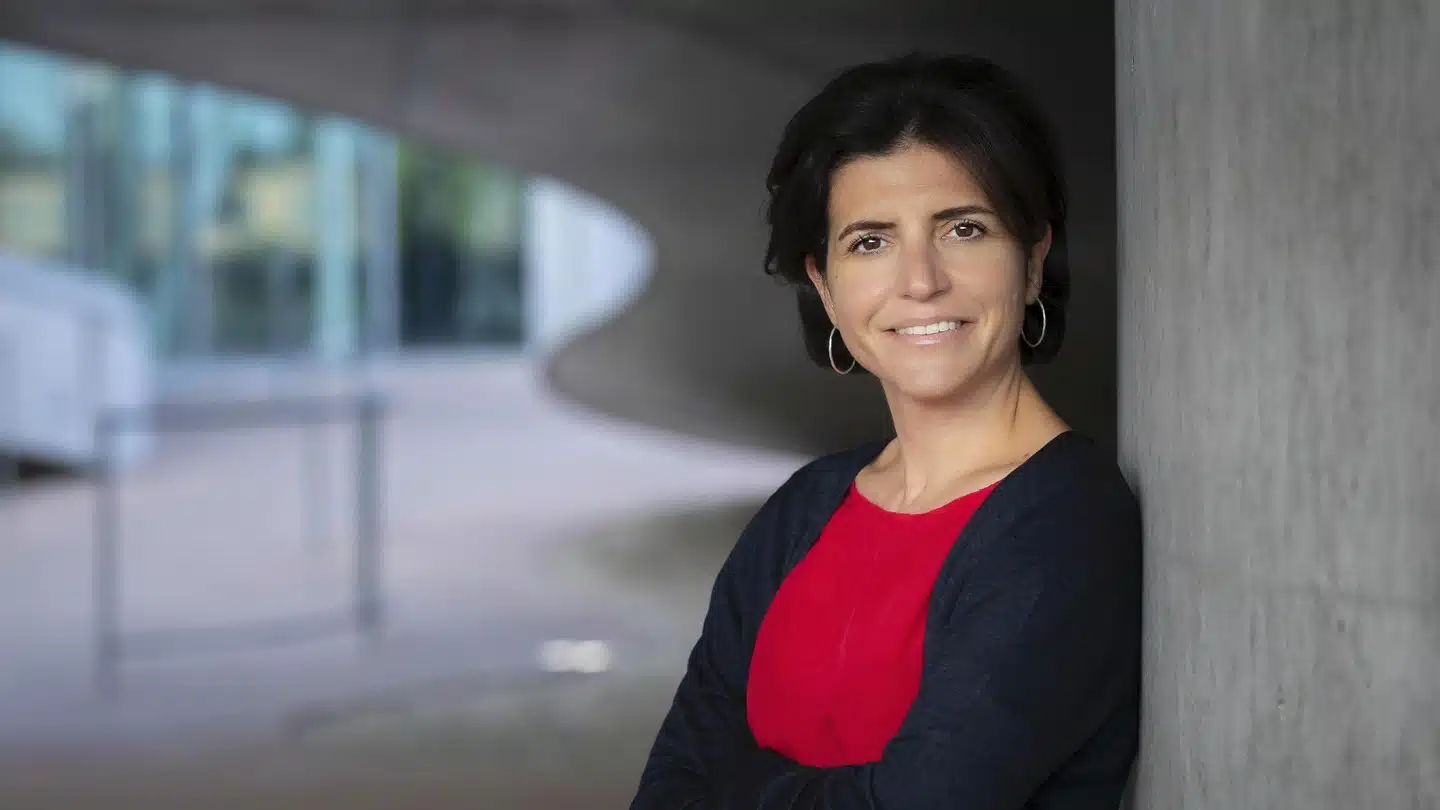

With a passion for innovation, support for diversity, and a desire to see bold ideas transformed into high-impact startups, Isabel Casado, the new head of Startup Launchpad, recounts her journey and the challenges of launching aspiring entrepreneurs.
Around a decade ago, after many years working for major multinationals, Isabel Casado made the leap into the exciting world of innovation and emerging technologies. The new head of the Startup Launchpad, EPFL’s startup incubator, says it was an obvious choice: “I’ve worked in organic growth and consulting roles and managed large teams. But what I really enjoy is interacting with people, passing on my knowledge and helping others advance toward their goals. That’s exactly what supporting startups is all about: we provide a launchpad, but the founders have to find their own way.” Casado, who graduated from EPFL with a master’s degree in computer science, has held various roles on campus over the years: first at the Technology Transfer Office and later in developing startup support programs. But her enthusiasm for early-stage ventures remains as strong as ever: “Helping young, motivated and energetic entrepreneurs is one of the best jobs at EPFL.”
The positive feedback we get from the entrepreneurs we’ve helped is a sign that we’re getting it right. Many of them are happy to come back to EPFL to serve as role models, talk about their journey and inspire the next generation
The exciting world of emerging technologies
Casado brings her own energy and experience to EPFL’s Startup Launchpad, which has grown considerably in recent years. It all began 20 years ago with Innogrants, a flagship program of the Vice Presidency for Innovation and Impact, which celebrated its anniversary this year. “Successful applicants receive a year’s salary. But what matters more is the time they’re afforded: a full 12 months to devote to developing their technology.” Since then, new forms of assistance have been added to this program, offering young startups the practical means to move from concept to action: prototyping their technology, testing their market, and transforming their idea into a business, even while still students. Bringing a startup to profitability remains a challenge, as securing investment has become more difficult and requires solid proof of its potential. But taking a startup from inception to profitability remains as challenging as ever – not least because securing funding is becoming increasingly difficult. “These days, investors are much more selective. They tend to wait until fledgling businesses already have customers on board, or at least until there’s demonstrable market interest. In this new landscape, structured planning and preparation hold the key to successful fundraising.” Two years ago, the School’s startup support team launched the Investor Day event to connect founders with potential backers. This event is not just a simple meeting with investors: it also offers a valuable networking opportunity, allowing young companies to exchange ideas with other entrepreneurs, experts, and strategic partners. It is a key moment for them to boost their visibility, refine their approach, and forge connections that will be decisive for the future of their project.“We do our best to ensure they’re dealt good cards, but it’s up to them to play those cards right.”
So far, the results have been promising: the number of new startups is on the rise, more founders are successfully securing funding and only a small percentage of fledgling ventures call it quits. “The positive feedback we get from the entrepreneurs we’ve helped is another sign that we’re getting it right. Many of them are happy to come back to EPFL to serve as role models, talk about their journey and inspire the next generation.”
“There’s no such thing as a typical entrepreneur”
Diversity is another issue close to Casado’s heart: “There’s still work to do on tackling unconscious biases toward minorities of all kinds.” The only woman in her master’s program, she’s experienced bias first-hand. “The funniest episode happened at the doctor’s office a few days after I’d graduated,” she recalls. “The secretary – herself a woman – came into the waiting room and asked me to correct an error on my form. I’d written ‘engineer’ as my occupation. She told me I was supposed to put my occupation, not my father’s!”
Casado stresses that “there’s no such thing as a typical entrepreneur. People generally expect founders to be extroverts and confident public speakers. But introverts can make equally good entrepreneurs when they let their skills and knowledge do the talking. Anyone can succeed. You just need the courage to be yourself.” She’s realistic about the position of women: “Men still outnumber women among students at EPFL, although the gap is closing. This gender imbalance is reflected in the startup community. But, importantly, there’s no difference in success rates between female- and male-led ventures.”
Debunking the startup myth
For younger generations, the word “startup” has lost some of its shine. “Many young people associate the concept with Elon Musk and the excesses of capitalism,” says Casado. “But that’s only part of the story. Startups can also create jobs and deliver other societal and economic benefits without necessarily targeting unbridled growth.” She supports the idea that business and technological innovation are mutually reinforcing: “A disruptive value proposition will always lead to growth. But funding isn’t the only measure of success.”
Casado believes that, in the future, innovation strategies will need to align with the major challenges facing society, such as nutrition, climate and agriculture. “We need to think earlier about the potential impact of our research – to take a societal need or challenge as our starting point and develop a solution using the technologies developed on campus.”